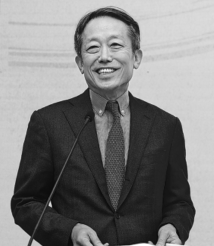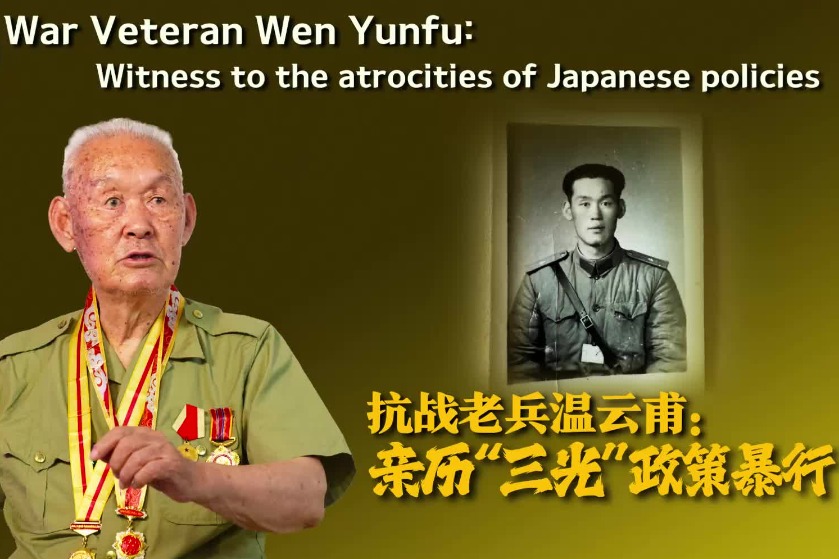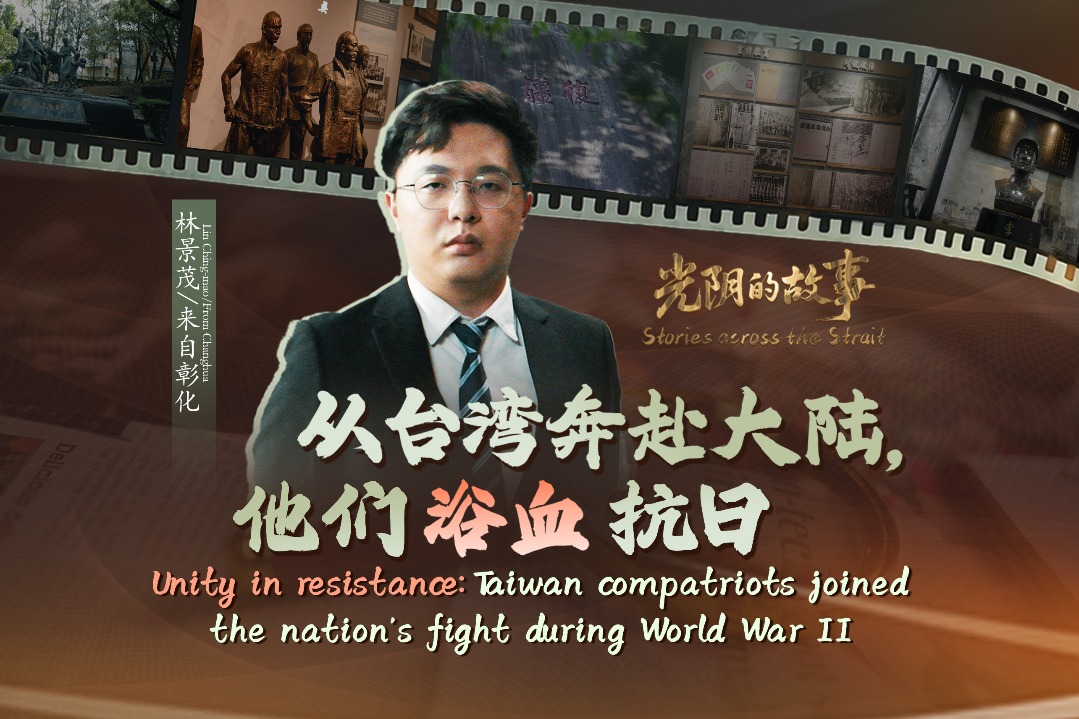Time to accept sage advice
Former UN official tells Sinologist forum that listening to wisdom of the past can help pave the way to a better future, Wang Xin reports in Shanghai.

The wisdom of Chinese sages can help promote mutual understanding and contribute to solving global challenges, such as climate issues and wars, and encourage international cooperation and shared development, Sinologists said at the World Conference on China Studies Shanghai Forum last week.
At a subforum of the gathering for China studies, scholars explored the wisdom of Laozi (Lao Tzu) and Confucius, and how they shed light on responses to major challenges facing the modern world.
"Global civilizations are facing various challenges," said Kim Wonsoo, former under secretary-general of the United Nations, at the forum. "We are witnessing clashes of civilizations across the globe, yet mutual understanding and empathy are in short supply."
Kim has studied One Thousand Chinese Characters, or the Qianziwen in Chinese, and the Confucian classics since childhood. Growing up, he took to heart Lao Tzu's teachings of the path of emptiness, as well as Confucius' teachings to better yourself, improve your familial harmony, rule your country wisely, and bring peace to the world.
In addition to inspiring him on a personal level, Kim pointed out that the wisdom of these sages can enlighten responses to major challenges that the world is currently facing.
"Today we are facing a storm of crises that include climate disasters brought on by undisciplined industrialization and the exploitation of nature, the COVID-19 pandemic that has paralyzed the world, and an endless stream of interstate and civil wars that continue unabated into the 21st century," he said. Kim specified the risks, which he attributed to "human greed that has fueled overproduction and overconsumption since the Industrial Revolution".
"This ever-worsening pattern has disrupted the harmonious relationship between humans and nature and brought about the climate crisis that confronts us now. We need to take Lao Tzu's teaching of nonaction, nature, emptiness and peace much more seriously," he continued.
A notable saying by Lao Tzu goes: "Man follows the Earth, the Earth follows the universe, the universe follows the Tao, and the Tao follows only itself."
"All things in the world are connected, so when nature gets sick, we humans get sick as well. What we need is neither competition, nor passing of judgment, but to learn from each other. We need to regain a healthy balance and peace for all things," Kim added.
The wisdom of Lao Tzu has also deeply influenced Misha Tadd, associate professor and director of the College of Philosophy Global Laozegetics Research Center at Nankai University.
As a reader of ancient Chinese philosophy since the age of 14, Tadd has been devoted to the research of Tao Te Ching for about three decades, and still finds it captivating and worthy of study.
"One of the main characteristics of the Tao Te Ching is that it criticizes the ordinary, or mainstream, direction. That is, the all-out pursuit of fighting. Instead, it is a non-competition based philosophy, and it also emphasizes the principle of conquering firmness with softness. Thus, such wisdom may provide some reference of significance to solve some contradictions between people or between countries," said Tadd.
Over the past three decades, Tadd has also been translating and collecting different versions of the Tao Te Ching, and found that the classic is popular around the world. Last year, he published a catalog of global versions of the Tao Te Ching, including 2,052 translations in 97 languages.
To further global study of Lao Tzu's philosophy, Nankai University launched the College of Philosophy Global Laozegetics Research Center this year. To date, experts from 13 countries have joined, including those from Germany, South Korea, Japan, Iran, the United States, Indonesia and Slovakia.
The teachings of Confucius also remain relevant today.
"Confucius emphasized filling oneself through learning, whereby one could internalize benevolence and courtesy and establish life norms. Equally profound is his advocacy of a culture in which the elites build an ideal state by learning to govern home, society and the world," Kim said at the forum.
David Ferguson, honorary chief English editor of the Foreign Languages Press, took another perspective, sharing his story and understanding of the hospitality and friendship rooted in Chinese people.
"Hospitality to guests is a longstanding tradition in China that has endured from the times of Confucius and before, up to today. I have spent many years in China, and I have come to value hospitality and friendship as one of the greatest strengths of Chinese culture and the Chinese people," said Ferguson.
Going further, Ferguson pointed out that the concept of friendship extends to the national level, and it is reflected in China's approach to its relations with other countries, proved by the five principles of peaceful coexistence and the win-win mindset when it comes to international cooperation.
"Win-win captures a fundamental difference between China and the West. So China sees competitors as potential partners, with whom it can work to the benefit of both. The West sees competitors only as adversaries and enemies, to be crushed and beaten," he explained.
Ferguson noted that the Belt and Road Initiative, which he described as "a driver of change", perfectly encapsulates this phenomenon.
"If the BRI is successful, it will bring opportunities for growth and development to poor and underdeveloped countries involved, transform the future prospects of all participating countries, and create a fairer international order that is more just and equitable. It will give a stronger voice to developing countries, and allow their voices to be heard on the international stage," he said.
Notably, the BRI will promote people-to-people exchanges, and bring civilizations and cultures together, Ferguson added, which echoes with the well-known saying of Confucius: "To welcome friends from afar, is it not a great joy?"



Today's Top News
- Hope, skepticism and questions ahead of Trump-Putin summit
- Xi's article on promoting healthy, high-quality development of private sector to be published
- Japan must face up to its wartime past
- Vision turns county into green model
- China rolls out new visa type for young science talent
- Cambodia, Thailand urged to engage in dialogue, rebuild trust































